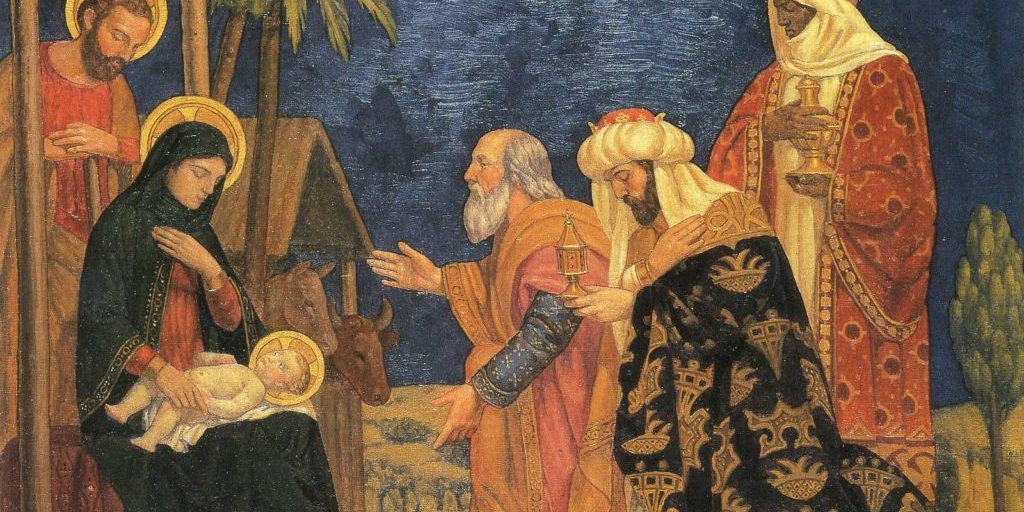
Wisdom Incarnate: A Theological Reflection on Christmas from Proverbs 8
From the most straight-forward perspective, Proverbs doesn’t have much to do with Christmas. But certain central doctrines in Christianity—“common places” as theologians call them—serve as crossroads for all the teachings of Scripture. The doctrine of the incarnation—the fact that God became man in Jesus Christ, which we celebrate at Christmas—is one of these common places. Although Proverbs doesn’t appear to connect to Christmas the book deals with the physical, incarnational, challenges of human life in practically every verse.
Proverbs 8 is a picture of Wisdom incarnate.
In 1 Cor 1:22–24 the Apostle Paul writes, “Jews demand signs and Greeks look for wisdom, but we preach Christ crucified: a stumbling block to Jews and foolishness to Gentiles, but to those whom God has called, both Jews and Greeks, Christ the power of God and the wisdom of God” (NIV). To the Church Fathers these verses didn’t just allow but demanded that everything in Scripture that refers to wisdom be read in connection to Jesus Christ. But this interpretive move precipitated one of the most significant theological debates in all of Church history. It centered on the text of Proverbs 8:22–31 and the doctrine of the incarnation.
Proverbs 8 and Arius
Gregory reasons that it is absurd to think of the only wise God acquiring the virtue of wisdom as if there was a time when God was unwise Share on X Wisdom is speaking in these verses (see Prov 8:3–4). Her voice is a poetic device—the personification of one of God’s attributes so that we can hear her speak and learn her story. The verbs draw out a primal birth metaphor: brought forth (v. 22), formed (v. 23), given birth (vv. 24–25). The poetry describes Wisdom’s “birth” to make one fundamental point—Wisdom precedes the creation of the world. Absolutely everything that has been made was made under her watchful eye. She was there “day by day” rejoicing and watching creation unfold (Prov 8:30–31; Gen 1:5–31). Within the context of Proverbs this means that we can trust Wisdom intimately and absolutely because she understands how the world works. She understands how we work within the world better than we do (Prov 8:12–21).
But this very birth metaphor, beautiful as it is, creates a theological challenge. The New Testament tells us that Jesus is Wisdom, and yet here we see Wisdom “brought forth,” “formed,” or “given birth” (Prov 8:22). As Arius (perhaps the most notorious heretic in Church history) argued, if the Son was “brought forth” then there was a time when he was not and this means he must be fundamentally different from God. A “created” Christ is a creature of a lower order than eternal God because he was once “brought forth.”
Gregory of Nyssa’s Incarnational Interpretation
In Book III of his master work, Contra Eunomium, the orthodox Church Father, Gregory of Nyssa, responded by making some brilliant theological connections. First, he grants a point to Arius and his followers—Gregory concedes that Wisdom (read Jesus) was born. But what does that mean and when did that take place?
The wisdom of the world is nothing if not the very wisdom that comes from God and that he put in it. Share on X Next Gregory pushes on the poetic language of Proverbs 8 to show that if Arius takes everything in the passage at face value in a wooden and literalistic way then it becomes absurd and falls apart completely (e.g., vv. 27–29). In other words, Arius is treating v. 22 literally but he cannot apply the same logic across the whole passage.
Finally, Gregory shows that in a similar way Arius’s reading would contradict other christological texts. For example, John 1:3 reads, “Through him [the Word/Christ] all things were made; without him nothing was made that has been made.” Colossians 1:16 forcefully makes the same point. “For in him [Christ] all things were created: things in heaven and on earth, visible and invisible.” Does “all things” include Wisdom? How can Christ create himself?
In place of Arius’s heretical reading, Gregory suggests that the moment of creation in Prov 8:22 refers to Christ’s incarnation, his birth of a woman for the sake of our salvation. Gregory argues that because Jesus is fully God and fully man, statements about Jesus can refer either to his divinity or to his humanity. Gregory reasons that it is absurd to think of the only wise God acquiring the virtue of wisdom as if there was a time when God was unwise. The wisdom of the world is nothing if not the very wisdom that comes from God and that he put in it.
Reading the Greek text of Proverbs, Gregory draws a line from Prov 8:22 to John 14:6 and argues that “the beginning of his works” should be understood to refer to Jesus as “the way, the truth, and the life” (the same Greek word lies behind both works and way). The beginning in Proverbs 8 is best understood as the beginning of our salvation initiated in the incarnation. Thus Gregory sees the same theological moment illustrated in both Prov 8:22 and John 1:14: “And the Word became flesh and dwelt among us, and we have seen his glory, glory as of the only Son from the Father, full of grace and truth.”
Gregory works out the theology of this passage by connecting Prov 8:22 to Jesus Christ in his humanity. The birth of Wisdom becomes the birth of Jesus as a human baby to redeem humanity.
Feasting with Wisdom
So what on earth can all this ancient theological reasoning mean for you at Christmas tide? Christmas celebrates the incarnation—the theological reality that the LORD has not abandoned his creation but entered into it. Proverbs 8, as Gregory reads it, illustrates the LORD’s great Wisdom in creation and in incarnation.
Proverbs 8 draws out the Wisdom of Christmas.
Get up from this screen and consider whatever Christmas treats or decorations are probably still strewn around your home. A fir tree has probably been chopped down, propped up, and decorated in a conspicuous place in your living room. Know that Wisdom incarnate, the LORD himself, rejoiced as each of its boughs and needles were traced out before the dawn of time. Wisdom will save the world. Share on X
Consider the faces of your loved ones as you gathered to carry on the simple traditions that define the season. As you look on their faces, know that Wisdom incarnate, the LORD himself, rejoiced as they were formed ligament and limb in the womb and brought forth into this world.
Listen as the Scriptures are read this new year. As you lift your eyes, know that Wisdom incarnate, the LORD himself, walked into the world that He Himself made through the womb of a woman to make us wise unto salvation (2 Tim 3:15).
Christmas is nothing if not a feast. Enjoying the incarnation of Wisdom in Christ involves rejoicing with Him in His creation. This is precisely what Wisdom herself does in Prov 8:30–31: “Then I was constantly at his side. / I was filled with delight day after day, / rejoicing always in his presence, / rejoicing in his whole world / and delighting in mankind.”
So, on Christmas and throughout this new year, give thanks for the Wisdom of God made flesh that we, in our flesh, might be made wise. Feast and sing day by day. Rejoice in his presence, rejoice in his whole world, and delight in all mankind. Wisdom will save the world.

